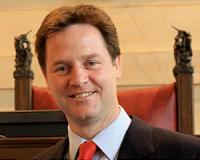| . |  |
. |
Manila (AFP) May 14, 2010 Philippine politics will never be the same after the country's first automated ballot electrified voters long used to cheating, violence and disputes over delayed results. Senator Benigno Aquino, 50, whose parents led the struggle to restore Philippine democracy, will soon become the country's first digitally elected president after a rapid vote count showed him winning by a landslide. Despite daunting logistic challenges in a sprawling Southeast Asian archipelago with 50 million voters, ballot-counting machines were activated just in time for Monday's elections for 17,000 positions. The saying that "guns, goons and gold" lord it over Philippine elections may no longer be totally true after a new weapon, the microchip, entered the scene. "That was so pleasant: waking up to the results the morning after general elections," political scientist Alex Magno wrote in the daily Philippine Star. "If there was any group wanting to disrupt the voting and the count, they were stumped by the speed of the process." In the past, paid thugs as well as rouge soldiers and policemen working for politicians snatched ballot boxes, intimidated voters and doctored tallies. This time, Filipinos were thrilled by the chance to slip their own ballots into digital scanners and know the results were being stored electronically for delivery to a central computer server in Manila, safe from theft and tampering. "It was really an overwhelming experience for me because I knew that at that moment, I was making history for the country," said Franz Jonathan de la Fuente, 19, a first-time voter studying journalism at the University of the Philippines. "I understand that other kids my age during past elections voted manually. Somehow I felt assured that through automation, there was a better chance of my vote being counted," he told AFP. The United States and other countries welcomed the overhaul of the flawed election system in one of the world's most boisterous democracies. European Union Ambassador to Manila Alistair MacDonald said after observing the election that "voters seemed generally comfortable with this new system" and the process seemed to work well. Not everybody was happy -- former president Joseph Estrada, trailing Aquino by five million votes, has indicated he will raise technical questions when the Philippine Congress certifies the electronic results in a few weeks. Violence remained a problem, highlighted by last November's massacre of 57 civilians by gunmen loyal to a powerful Muslim politician in the southern island of Mindanao. The clan's leaders are now in detention. Dozens of other people were killed in election-related violence, including 10 on polling day, mostly in the restive south where Muslim militants and communist guerrillas are a perennial threat. Legacy problems such as inaccurate voter lists also cropped up during the vote and election officials admit further improvements are needed. But the country appears to have bought the idea that computers can safeguard democracy. In the old system, ballots were dropped by hand into locked metal boxes and counted by hand after sundown, when mischief was easier to commit in outlying provinces under cover of darkness. Small disputes and transport delays in thousands of polling centres could prolong the process all the way down to the national tally. Modern-day Philippine democracy can be said to owe its existence to dirty elections. In 1986, the dictator Ferdinand Marcos was challenged in a snap election by Corazon "Cory" Aquino. She was the widow of Marcos's bitter foe, Benigno "Ninoy" Aquino, who had been assassinated three years earlier by government troops. Amid massive cheating and protests, Marcos was proclaimed the winner of the 1986 elections but Aquino led a "People Power" revolution that sent the dictator into US exile and the widow into the presidency. Twenty four years later, her son, Beningo "Noynoy" Aquino, is awaiting proclamation as president after the most dramatic reform of the Philippine election system.
Share This Article With Planet Earth
Related Links Democracy in the 21st century at TerraDaily.com
 Walker's World: A new U.K. government?
Walker's World: A new U.K. government?Washington (UPI) May 10, 2010 The British people didn't speak so much as grumble, mumble and shuffle their feet. They didn't quite sack Prime Minister Gordon Brown and didn't quite elect the Conservative leader David Cameron to replace him. Instead, they decided against the traditional tribal politics and left and right, forcing the politicians to explore new and consensual ways of doing the nation's business. Now i ... read more |
|
| The content herein, unless otherwise known to be public domain, are Copyright 1995-2010 - SpaceDaily. AFP and UPI Wire Stories are copyright Agence France-Presse and United Press International. ESA Portal Reports are copyright European Space Agency. All NASA sourced material is public domain. Additional copyrights may apply in whole or part to other bona fide parties. Advertising does not imply endorsement,agreement or approval of any opinions, statements or information provided by SpaceDaily on any Web page published or hosted by SpaceDaily. Privacy Statement |